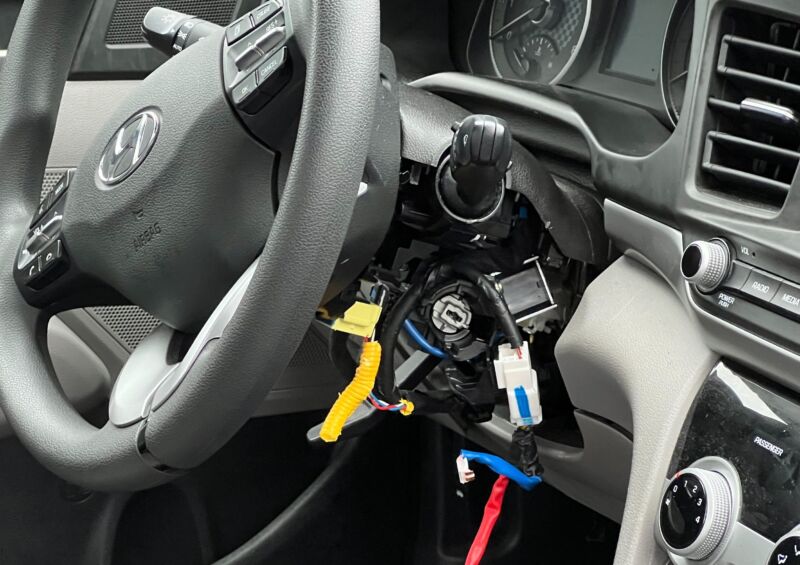Kia and Hyundai agree to $200M settlement for making cars viral theft targets

Hyundai and Kia will pay out $200 million in a class-action lawsuit settlement, compensating roughly 9 million people for their losses after a 2022 social media trend revealed how relatively simple it was to steal certain models.
As reported by Reuters, $145 million of the payout goes to the out-of-pocket expenses of those whose cars were stolen. Many Kias made between 2011-2021, and Hyundais from 2015-2021, lacked electronic engine immobilizers, which would prevent a car from starting unless an electronically matched key was present. Without the immobilizer, the car could be started by turning the ignition with other objects, such as a USB-A cable that thieves discovered was a perfect fit.
Customers whose cars were totaled are eligible for up to $6,125, while damaged vehicles and property can receive a maximum of $3,375, along with costs for raised insurance, car rental, towing, tickets, and others. Kia and Hyundai had previously pledged to provide free software upgrades to vehicles and free wheel locks (i.e. The Club), typically in coordination with regional police departments. The National Highway Traffic Safety Administration said in February that the companies have given out 26,000 wheel locks since November 2022.
A September 2022 report by the Insurance Institute for Highway Safety (IIHS) showed that immobilizers were standard on 96 percent of cars sold in the US by 2015 but only 26 percent of Kias and Hyundais. Cars with immobilizers were stolen at a rate of 1.21 per 1,000 insured vehicles, according to the IIHS; those without immobilizers had a 2.18 per 1,000 rate.
Kia and Hyundai’s far-too-thrifty design decisions might have been simply a balance sheet story were it not for the “Kia Challenge,” a 2022 TikTok trend that detailed theft techniques and joyrides. By February 2023, the National Highway Traffic Safety Administration attributed 14 crashes and eight deaths to challenge-inspired thefts.
There is no nationwide count of social-media-inspired joyrides, but individual cities have reported unmistakable upticks in certain car thefts: Buffalo, New York, saw a 500 percent increase in Kia thefts from 2020 to 2022. In Philadelphia, Hyundai and Kia thefts grew 400 and 700 percent, respectively, from 2019 to 2022.
Before this settlement, cities including Seattle, Baltimore, and Columbus, Ohio, have filed suit against Kia and Hyundai, according to NPR. Attorneys general in 17 states and the District of Columbia pressed the NHTSA last month to issue a mandatory recall of all vehicles lacking immobilizers.
Both car manufacturers have been slow to address the issue or generate a sense of sympathy for affected customers. Prior to February’s promise of software updates, steering locks, and update-validating stickers, the company intended to charge customers $170 for security kit upgrades. Having a trained technician actually install that kit could have cost up to $500. All the while, parts for the stolen cars, including the kits, have been scarce.
“We appreciate the opportunity to provide additional support for our owners who have been impacted by increasing and persistent criminal activity targeting our vehicles,” Jason Erb, chief legal officer for Hyundai North America, said in a statement. “Customer security remains a top priority, and we’re committed to continuing software upgrade installations and steering wheel lock distribution to help prevent thefts and offering insurance options through AAA for those who have had difficulty securing and sustaining coverage.”
A list of the affected Kia and Hyundai models can be found on the press releases on Kia‘s site. Preliminary approval for the class action is set for July, with members of the classes to then be notified.
https://arstechnica.com/?p=1940470